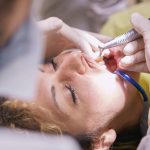
If you’ve ever been curious about the differences between holistic and biological dentists, you’re in the right place. Essentially, both professionals aim to improve oral health, but their approaches differ significantly. Think of it as two unique paths leading to a healthy smile.
Holistic Dentistry Explained
Holistic dentistry, also known as integrative or alternative dentistry, focuses on the overall health of the patient, not just the teeth and gums. This practice takes into account the body’s interconnected systems. Here, dental health is seen as an integral part of a person’s general well-being.
Focus on Natural Remedies
Holistic dentists often use natural remedies and discourage the use of potentially harmful chemicals and materials. They aim to avoid procedures that may negatively impact other body systems. Services such as mercury-free fillings and BPA-free sealants are common.
Emphasis on Preventive Care
Prevention plays a big role in holistic dentistry. You’ll often hear advice about diet, stress management, and maintaining good oral hygiene, as these factors contribute to your overall health. The idea is to prevent issues before they arise.
Biological Dentistry Overview
Biological dentistry shares some principles with holistic dentistry but goes a step further by incorporating a broader range of scientific research. It often involves advanced dental treatments and prefers using biocompatible materials that the body can accept without adverse reactions.
Emphasis on Biocompatibility
A biological dentist prioritizes biocompatible materials for dental treatments. For instance, biocompatible non metal dental implants may be recommended over traditional titanium implants, as they’re friendlier to the body’s natural biology.
Integration with Medical Testing
Biological dentists often use medical testing and advanced diagnostics to determine what materials and treatments will work best for an individual. Blood tests, sensitivity tests, and DNA testing might be employed to ensure treatments align with the patient’s unique biological makeup.
Approach to Dental Fillings
One of the notable areas where holistic and biological dentists vary is in their approach to fillings. Holistic dentists usually prefer using BPA-free composite fillings because they believe these are safer for overall health. These composite fillings avoid the use of potentially harmful chemicals.
Handling Dental Amalgams
-
Holistic Dentists: Avoid the use of amalgam fillings outright due to their mercury content. If they need to remove mercury fillings, they follow specific protocols to ensure safety.
-
Biological Dentists: Also prefer alternatives to amalgam fillings and follow strict safety protocols for removing mercury fillings. They, however, tend to use more medical tests to guide the process.
Differences in Patient Assessment
The difference between holistic and biological dentists can also be seen in how they assess their patients. Holistic dentists focus on a wide range of lifestyle factors such as diet, stress, and sleep patterns. They believe these factors can significantly impact dental health.
On the other hand, biological dentists may incorporate these factors but are more likely to utilize detailed medical testing and a scientific approach to select the best treatment plants.
Materials and Tools
The materials used by holistic and biological dentists are crucial in differentiating between the two practices.
-
Holistic Dentists: Prefer natural or organic products. They may use herbal rinses, essential oils, and similar options wherever possible.
-
Biological Dentists: Choose materials backed by medical research to be biocompatible. This could include specific types of ceramics and polymer-based materials formulated to work well with the human body.
Holistic and Biological Dentists in Action
So, what can you expect during a visit to either a holistic or biological dentist? Let’s walk through a typical appointment.
Holistic Dental Visit
-
First, you’ll often begin with a comprehensive health history review, which covers more than your oral health.
-
Diet and lifestyle will likely be discussed to see how they impact your dental health.
-
Examinations may include looking at your bite, the alignment of your teeth, and sometimes even your posture.
Biological Dental Visit
-
Biological dentists also take comprehensive health histories but are likely to conduct more specific medical tests.
-
Expect to undergo tests such as pH balance measurements, blood tests, and sensitivity tests.
-
Treatment recommendations will include scientifically backed materials and methods.
Making Your Choice
Deciding between a holistic and biological dentist ultimately comes down to your personal preferences and health needs. If you lean towards natural remedies and preventive care, a holistic dentist might be the best fit. On the other hand, if you prefer a more scientific approach backed by medical testing, a biological dentist could be your choice.
Final Thoughts
In the end, both holistic and biological dentists aim to improve your dental health by considering the body’s broader context. They focus on personalized care and look at the long-term impact of dental treatments on your overall well-being. Understanding the differences between these approaches can empower you to make an informed decision that aligns with your personal values and health goals. Whether you prefer natural remedies or medically backed biocompatible materials, both types of dentists are committed to providing meaningful and effective care.























































